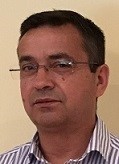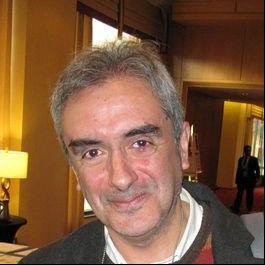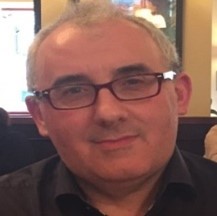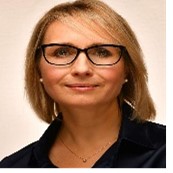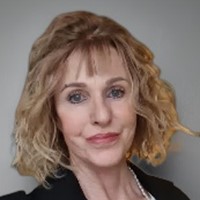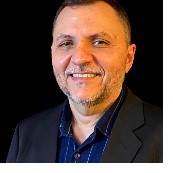Below are the ECMLG Biographies of the Conference and Programme Chairs, Key Note Speakers and Mini-Track Chairs.
Conference and Programme Chairs
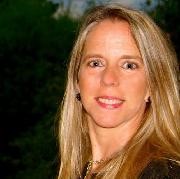
Mafalda Patuleia has a Ph.D. in Tourism from the Faculty of Economics of the University of Algarve. She is the Head of the Tourism Department of the Lusófona University. She is also a researcher at the GOVCOPP - Research Unit on Governance, Competitiveness and Public Policies (Aveiro University) and at the TRIE -Transdisciplinary Research Center of Innovation & Entrepreneurship Ecosystems, with research interests in tourism destinations and hotel management. She has produced research in the field of second homes, lifestyle migration, competitiveness in tourism destinations, and lifestyle entrepreneurs, including book chapters, papers in scientific journals and conference proceedings, case studies, and working papers. Lusófona University, Campo Grande, 376 Lisbon mafaldapatuleia@ulusofona.pt Orcid: 0000-0002-8401-1860
José Carlos Dias Rouco is an Associate Professor of Human Resource Management in the School of Economic Sciences and Organizations at Lusofóna University. He obtained her PhD from Lusíada University in 2012. He holds a Master's degree in Sports Training Management from Faculty of Human Motricity at Technical University of Lisbon. He has a graduation (5 years) in Military Sciences from the Portuguese Military Academy. Currently, he is the director of the Department of Air Transport and Airports Management, Director of the Bachelor's degree in Aeronautical Management. He teaches courses on crisis management, strategic and leadership, leadership and ethics, strategic marketing, international negotiations, human resource management, development and vocational training and organizational behavior. He has taught and coordinated several intensive leadership courses (internal regime for 5 days) for young university students, entrepreneurs, bankers, and firefighters. Currently, he is a researcher of a research project on Stressense funded by FCT, which was awarded the scientific prize. He is a regular reviewer for many International journals.
Eduardo Tomé gained is PhD in Economics (2001), with a Thesis on the European Social Fund. Since then he has worked in several Portuguese private universities. He published over 50 papers in peer-reviewed Journals and presented 90 papers in international conferences. He also authored 7 book chapters, He was involved in organising and chairing 12 international Conferences (MSKE, UFHRD, ECKM and TAKE) which he also co-edited the Proceedings and edited four Specials Issues in EJKM, EJTD and IJKBD. Since September 2020 he has worked at Universidade Lusófona in Lisbon, Portugal. His main interests are Intangibles (Human Resources, Knowledge Management and Intellectual Capital), Social Policy and International Economics (globalization and the European Integration).
Keynote Speakers
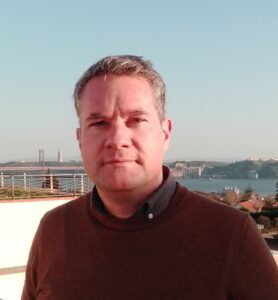
Dr Álvaro Lopes Dias is Professor of Tourism, Marketing, and Entrepreneurship at ISCTE-IUL, Lisbon, Portugal. He holds two Ph.Ds. one in Management and Marketing and another in Tourism and is a researcher at BRU-Business Research Unit/ISCTE-IUL. Postdoctoral studies in Management, MSc in Strategy, and MBA in International Business. He has over 28 years of teaching experience. He has had several visiting positions in different countries and institutions including Brazil, Angola, Spain, Saudi Arabia, Poland, and Finland. Professor Dias has produced extensive research in the field of Tourism and Marketing. His work has published Int. J. of Contemporary Hospitality Management, Current Issues in Tourism, J. Sustainable Tourism, J. Brand Management or Bus. Process Management J
Thomas Garavan is Professor of Leadership Practice in CUBS, UCC and Visiting Research Professor, National College of Ireland, Dublin. He is a world leading expert in leadership development, learning and development and HRD. He has published extensively in the leading HRD journals His most recent book publications include Learning and Development in Organizations: A Systems-Informed Model of Effectiveness (Palgrave), Strategic Human Resource Management (Oxford University Press), Handbook of International Human Resource Development (Edward Elgar) and Global Human Resource Development (Routledge). He is editor-in chief of Human Resource Development Review. He is co-editor of European Journal of Training and Development and Associate Editor of Personnel Review and is a member of the HRDQ, HRDI, HRDR, ADHR, HRMJ, International Journal of Training and Development and International Journal of Human Resource Management. He has extensive teaching experience in addition to executive education and leadership development. He was elected to the Hall of Fame of the Academy of Human Resource Development, USA in 2021 and has won numerous awards for publication and journal editing.
José Neves has a degree in Aerospace Engineering from Instituto Superior Técnico and a postgraduate degree in Management from Universidade Nova de Lisboa. He is Chairman of the Board of Directors of AED, the Portuguese Aeronautics, Space and Defense Cluster, and a member of the Board of Directors of the multinational GMVIS SKYSOFT S.A. José is an expert for the Artificial Intelligence in Aviation Committee, SAE G-34 Standard on the Process for the Development and Certification of Aviation Safety-Related Products Implementing Artificial Intelligence, founder and member of the NATO FAMOS Working Group, which addresses the interoperability of embedded avionics systems, and is also an expert for the European Commission for the Horizon 2020 CleanSky 2 Program for the Small Transport Aircraft and Fast Rotorcraft domains.
Mini-Track Chairs
Dr Tatiana Gladkikh is Lecturer in Management at the University of Aberdeen Business School. As an academic and consultant, she has worked the UK, Russia, Europe, the Middle East and South-East Asia. Her research is focussed on cross-cultural leadership, cross-cultural issues in the global business environment, and luxury end of tourism. Her latest publication is Luxury Yachting: Perspectives on Tourism, Practice and Context (Palgrave Macmillan, 2022). Tatiana’s currently editing a new book on luxury yachting which will be published in 2024. Dr Gladkikh is an associate editor of The Journal of Management Development. She is a Senior Fellow of the Higher Education Academy (SFHEA) and a Member of the Chartered Institute of Linguists (MCIL).
Valerie Priscilla Goby, PhD (Business, Finland), PhD (Communication, Australia), FHEA, SFHEA, a professor at Zayed University, Dubai, has published across a range of disciplines including business ethics, leadership, cross-cultural communication, CSR, and gender studies in journals such as Journal of Business Ethics, Leadership and Organisation Development, and Women’s Studies International Forum.
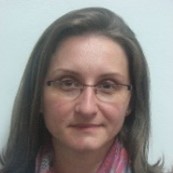
Camelia Iuliana Lungu is professor of accounting at the Faculty of Accounting and Management Information Systems and the Director of Doctoral School of Accounting, Bucharest University of Economic Studies. With an experience of more than 20 years in accounting research topics, Dr. Lungu is scientific reviewer of prestigious academic journals (Accounting in Europe, Journal of Organizational Change Management, Renewable and Sustainable Energy Reviews), associate editor of the Journal of Accounting and Management Information Systems, member of scientific committee of the 14th IAAER World Congress of Accounting Educators and Researchers and member of EAA 2024 Annual Congress Organizing Committee.
Associate Professor Joao Alexandre Lobo Marques Associate Professor, Research Coordinator, Head of the Laboratory of Applied Neurosciences, Head of the Department of Business Administration - University of Saint Joseph/USJ Macau SAR, China. Visiting Associate Professor Chinese Academy of Sciences (CAS) - Shenzhen Institutes of Advanced Technologies (SIAT). Member of the Board of Advisors - Master in Global Marketing Management - Boston University Metropolitan College. Author of 9 books. Research interests: Artificial Intelligence, Data Science, Big Data, Business Analytics, Linear and Nonlinear Time Series Analysis, Signal and Image Processing, Applied Neurosciences.
Dr José Manuel Vicentes is Professor of Air Transport Planning I and II, Concessions Management, Airline Route Management, Airport Business Economics, Ground Handling Assistance, and Marketing at Lusófona University, Lisbon, Portugal. He holds two PhDs in Management with Aeronautical Management research field and is a researcher at CETRAD – Intrepid Lab, Porto.. He has over 15 years of teaching experience. He has had several visiting positions in many different countries and institutions. Professor Vicente has produced extensive research in the field of Aeronautical Management, Sustainable Tourism, Marketing and Education.

